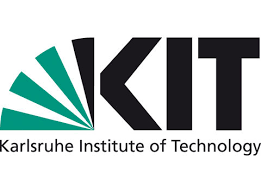Karlsruhe Institute of Technology: Sports science: appeal for an exercise pact
Even before the corona pandemic, most children and adolescents in Germany exercised less than recommended by the World Health Organization. Because schools and clubs were closed during the lockdowns, the healthy 60 minutes of physical and sporting activity spread throughout the day could not be achieved because, for example, there was no daily way to school. Sports scientists at the Karlsruhe Institute of Technology (KIT) therefore consider a quality offensive by local and federal politics to promote high-quality sports and physical activity for adolescents as necessary.
“We are concerned that the pandemic will leave a generation who lack fitness and that this will have a long-term negative impact on their health,” says sports scientist Professor Alexander Woll, head of the Institute for Sport and Sports Science (IfSS) at KIT. Together with colleagues from Germany’s only inter-institutional research center for school sport and sport for children and adolescents (FoSS) – which is supported by KIT and the Karlsruhe University of Education – the researchers wrote “5 theses and 11 recommendations on exercise and sports promotion against the background of the corona pandemic ”. As of today’s Education Day (December 8th), they emphasize this.
The paper emphasizes the importance of physical activity in adolescents for lifelong physical and mental health and social well-being. It is based on study data from the nationwide representative motor skills module study and the fitness barometer of the Kinderturnstiftung Baden-Württemberg, which show, among other things, that everyday physical activity and motor performance of children and adolescents decreased significantly in the second lockdown compared to the first. “Deficits not only have to be made up in math and German, motor development is also essential for holistic education, and we shouldn’t leave any children behind,” emphasizes Dr. Claudia Niessner, project manager of the motor skills module study.
Quality offensive for sports education training
Joint efforts to secure exercise and sport in schools, clubs and in leisure time are necessary at the federal, state and local levels and should be given extensive financial support in an exercise pact, said Woll.
At the communal level, good networking between sports and educational institutions (day care center / school) is important so that physical activity offers in all settings (including school sports and compulsory physical education) are of high quality and the adolescents benefit from it in the long term, says the head of the FoSS Professor Swantje Scharenberg. “There is a nationwide landscape of sports organizations in Germany that have great creative potential and a wealth of experience in developing new formats and concepts,” said the expert. “Due to the pandemic, they have developed many good offers, also digitally supported, and made available to the public. We should bundle these ideas for the healthy, active growing up of children in a quality offensive in (sport) pedagogical education and training! “
Movement areas in the cities
From an urban planning perspective, it is important to create areas for exercise, games and sports in the immediate vicinity, “especially in densely built-up areas” in order to support socially disadvantaged children and young people, the paper says. Niessner explains that children who live in multi-storey buildings in the big city would have moved the least during the pandemic.
The authors also suggest implementing cross-border concepts for high-quality, digital exercise offers. “During the pandemic, there were the first good concepts for complementary digital children’s and youth sports,” says Woll. These approaches should be promoted and further developed in a quality-assured manner and incorporated into the design of educational plans.

